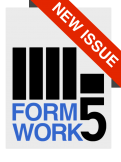
After five months of intense negotiations between the IEU and the Association of Independent Schools (AIS), discussions over the multi-enterprise agreement (MEA) for teachers in independent schools have reached an impasse.
The points of contention
The claims that the IEU put forward for members are modest and progress has been made, but two critical issues remain unresolved:
- maintaining the traditional pay premium that independent schools have historically offered over government schools; and
- establishing fair, clear, and transparent standards for each school covered under the proposed MEA.
Although the union supports the shift towards a single classification pay structure that aligns with other school sectors, the AIS’s proposal for transitioning existing teachers to the new pay scale is deeply problematic.
The proposed transitional arrangements for existing teachers, particularly those with experience, will place them at a distinct disadvantage compared to teachers who would be newly employed at the same school.
For instance, experienced teachers who have achieved Proficient status and have five or more years of teaching experience are currently classified as Band 2 (under Standards Model or Band 2 Step 13 under the Hybrid Model). When these teachers transition to the new classification structure, they will be placed at Step 2.4. In contrast, a newly employed teacher with similar experience will commence at Step 2.5, the highest step within the new classification framework.
The discrepancy highlights the inequity of the transitional arrangements which will undermine the morale of experienced teachers.
Status in bargaining
The IEU has raised significant concerns regarding the AIS proposal, clearly outlining the issues our members face. Unfortunately, these concerns have not been acknowledged. Instead, the AIS has requested the union’s written agreement by no later than 7 November 2024 to move forward with a vote on their proposed draft MEA among their teachers. The IEU believes that the proposed MEA is not yet ready for such a vote.
With negotiations stalled, now’s the time to explore new strategies to break this deadlock.
New bargaining rules
In June 2023, reforms to the industrial landscape introduced new pathways for multi-employer bargaining. This change opens several streams through which MEAs can be created, including:
- single-interest bargaining stream; and
- cooperative bargaining stream
These streams represent different approaches to achieving the same goal: an MEA that improves pay and conditions for teachers.
Currently, the IEU’s negotiations with the AIS fall under the cooperative bargaining stream, which relies heavily on co-operation between employers and employees (via their bargaining representatives).
While cooperative bargaining works best in environments where both sides can negotiate in good faith, it limits the union’s ability to advance members’ interests if employers refuse to cooperate.
Given the current deadlock in bargaining for teachers in independent schools, we believe it is necessary to switch to the single-interest bargaining stream to better serve our members.
Shifting streams
The single-interest bargaining stream allows unions to negotiate with groups of employers that share common interests. This stream restores balance to bargaining power, addressing the limitations introduced by the Fair Work Act 2009 (Cth). Key advantages of this bargaining stream include:
- support from the Fair Work Commission (FWC) in resolving bargaining disputes; and
- the ability to take protected industrial action if members choose to do so.
In 2022, during the historic joint industrial action by Catholic systemic and NSW government school teachers, independent school teachers were unable to participate in protected industrial action due to these legal limitations. Shifting to the single-interest stream provides an opportunity to overcome such constraints and build real bargaining power.
Majority rules: The need for 50% plus one
It is plain to see why employers are resisting change, but the power to authorise this approach lies with our teachers in independent schools. If we can demonstrate that a majority (50% + 1) of teachers in each independent school support the shift, the FWC will grant us authorisation.
To achieve this, we are gathering support through our confidential online petition (see QR code, below left), which targets teachers in independent schools. The data collected will only be used to secure authorisation from the FWC and never shared with anyone else, particularly employers.
The power of the collective
This bargaining and all future bargaining for teachers in independent schools lies in your hands. Every signature on the petition strengthens our case to pursue fairer pay and better working conditions.
This is a critical moment to embrace change and reclaim our power. Encourage your colleagues to join the union and support this campaign. The strength of the union lies in the collective strength of its members. Together, we can shape a fairer future for all.
If you are not yet a member or know someone at your school who is not an IEU member, now’s the time to join the union. Your voice and participation are essential in driving real change for our profession.













































































































































